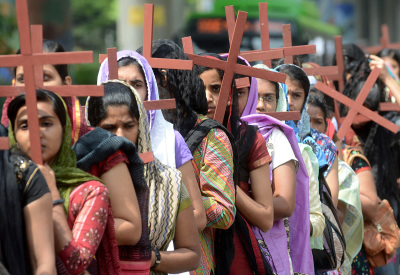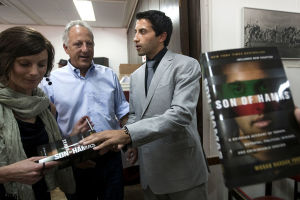Why we must rethink our modern missions model

The world and its geo-political sensitivities are far different from the last century. While industries, businesses and politicians have to contend with phenomenal changes, it appears that Western churches and missions are unwilling to adapt to the complex new realities.
Take, for example, the lingo used by missions organizations. Many still use old language which triggers deep hostilities and violence against Christians. Terms like “conversion” or “unreached people groups” cause great trouble.
The Western world also needs to take an honest look at the steady decline of the Western Church. Western Christians need to acknowledge that their mission models are not working within their own cultures. Churches are increasingly lost in the bubble of their own Christian subcultures.
The question arises: How can a church that has not addressed its own serious decline think they have a model for the rest of the world? Slogans such as “discipling a nation,” coming from a Western church, are tone-deaf in that many of the churches working toward this agenda have not even discipled their own neighbors.
People in the majority of the world live in complex communities such as their place of employment, extended families, and tribes. It is within these domains where we need to see Christian discipleship, beyond just one’s identity as an individual, which remains a supreme value in the Western world.
Furthermore, Western missions have found it very hard to hand over power and strategy to local leaders. Various forms of neo-colonialism are still at play. Financial power is also a major stumbling block.
Those who have degrees in conducting mission work need to understand that Jesus actually humbled himself, and in an inverted power paradigm shift, allowed humans to lead the church under his headship.
It is still surprising to see missional organizations continue their obsession with numbers. According to some, there have been 500 million decisions for Christ in India in the last 50 years. If that were true, why do we not find that many radically transformed lives everywhere in India with a massive impact on society?
Similarly, think about all the claims of decisions for Christ made in America. What is the net impact of transformed lives and communities? Where are the supposed tens of millions of genuinely transformed lives there?
The simple explanation is that in today’s world, a decision does not mean authentic regeneration.
One reason for this sad reality is a shallow and reductionist understanding of the Gospel of the Kingdom of God that seems to pervade the West. It’s time for a level set on what the power of the Gospel truly means for a world in need today.
For too long we’ve heard preachers encourage hurting souls to accept Jesus as their savior to go to Heaven with too little regard for inter-requiem between Heaven and earth. A ticket to Heaven isn’t a cure for Hell on earth for the poor, the trafficked, the disenfranchised, the suffering, and the lost in this cruel world.
This error has left societies around the world — with people who long to know the life, love, and presence of Jesus in order to live life here and now — with only a partial version of the truth that will set them free. Many broken individuals and entire communities are crying out for God's solutions for the issues and burdens of today.
For the Good News of the full Gospel to take root in the majority world, it also ought to be preached in the context of long-term relationships and societal involvement where paradigm-shifting decisions are made. These bold decisions are made collectively and not merely by individuals. We ignore the bond of tightly-knit families and cultures at our own peril in the work of being a Christian witness to a community.
Put more simply: transactional Western thinking has hallowed out the full power of the Gospel in many cultures around the world.
Transformational impact takes root best in a local setting, at a slower pace than is customary in the West. With that, those of us who live in the majority world must recognize that a modern missions model built around the economic, political, and cultural might of the Western world is theologically flawed and unsustainable.
The culture of fast training, instant church plants and the like is one flaw of this imported model. This is simply inexcusable when we see the Spirit being poured out in the world and demonstrating remarkable miracles. It is up to the global Church to determine the new wineskins in which the new wine has to be conserved, in order that the flow of this wine continues uninterrupted.
Western Christians must recognize that, in the majority world, church planting as it exists today is often seen as part of the imperial colonial political enterprise to bring about demographic changes and destabilize local cultures especially when it is carried out at the behest of foreign agencies and groups. There is a significant pushback against this in today’s culture which was not there 100 years ago.
We need to engage in the spread of the Gospel as the early Christian communities did, by patiently coming alongside our brothers and sisters who are trying to witness and give them the freedom and authority to witness in a way that reflects the specific needs and issues of that community. The early church did it best through the laity who reached out to their communities on a more personal and social level.
Laying down community roots and building trust as men and women of peace takes time, care, and a lot of listening. Arbitrary goals and milestones, or counting “conversions,” must become a thing of the past. Genuine transformation within a local community is what matters, and this will more authentically draw people to the love of God. We must remember that historically the typical size of a local congregation is about 200. A multiplicity of these small congregations can transform societies if they are committed to the full Gospel of the Kingdom of God.
Some Christians look to the year 2033 — the 2000-year anniversary of the resurrection — as the next big impetus for world evangelization with its accompanying publicity and goals. But I would encourage these believers to refocus their efforts.
It would be best to spend a good degree of effort re-evangelizing the West. Perhaps it's time for Western Christian leaders to visit local Christian leaders in the majority world, learn from them, and see what God is already doing in the hearts of those there.
Before you cross the ocean, you must first have credibility when you cross the street. That credibility will build, in time, when the love of Christ is displayed not as a way to get to Heaven, but as a way for Heaven to invade the earth.
Archbishop Joseph D’Souza is an internationally renowned human and civil rights activist. He is the founder of Dignity Freedom Network, an organization that advocates for and delivers humanitarian aid to the marginalized and outcastes of South Asia. He is archbishop of the Anglican Good Shepherd Church of India and serves as the President of the All India Christian Council.




























